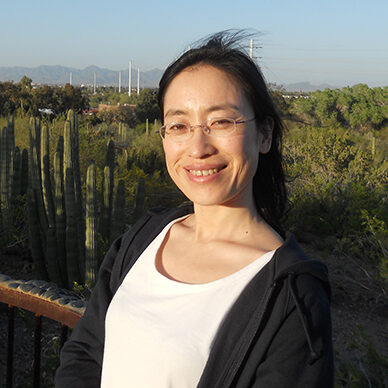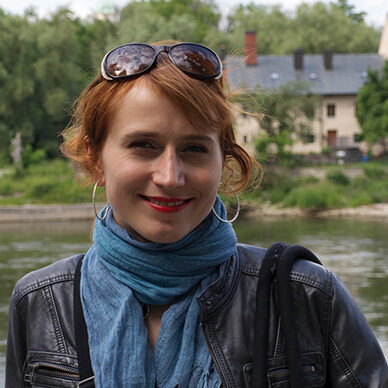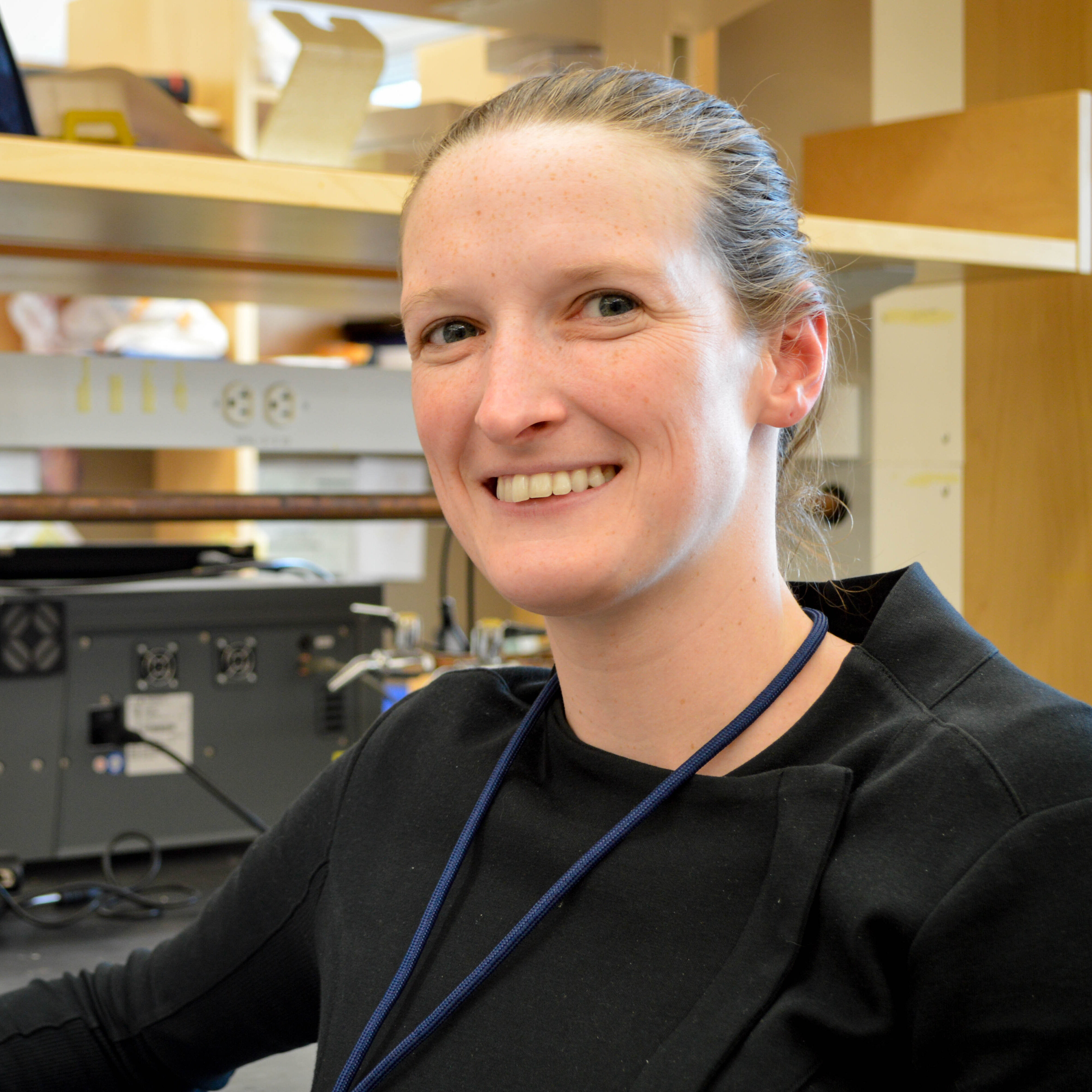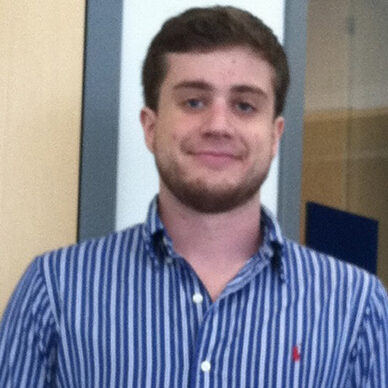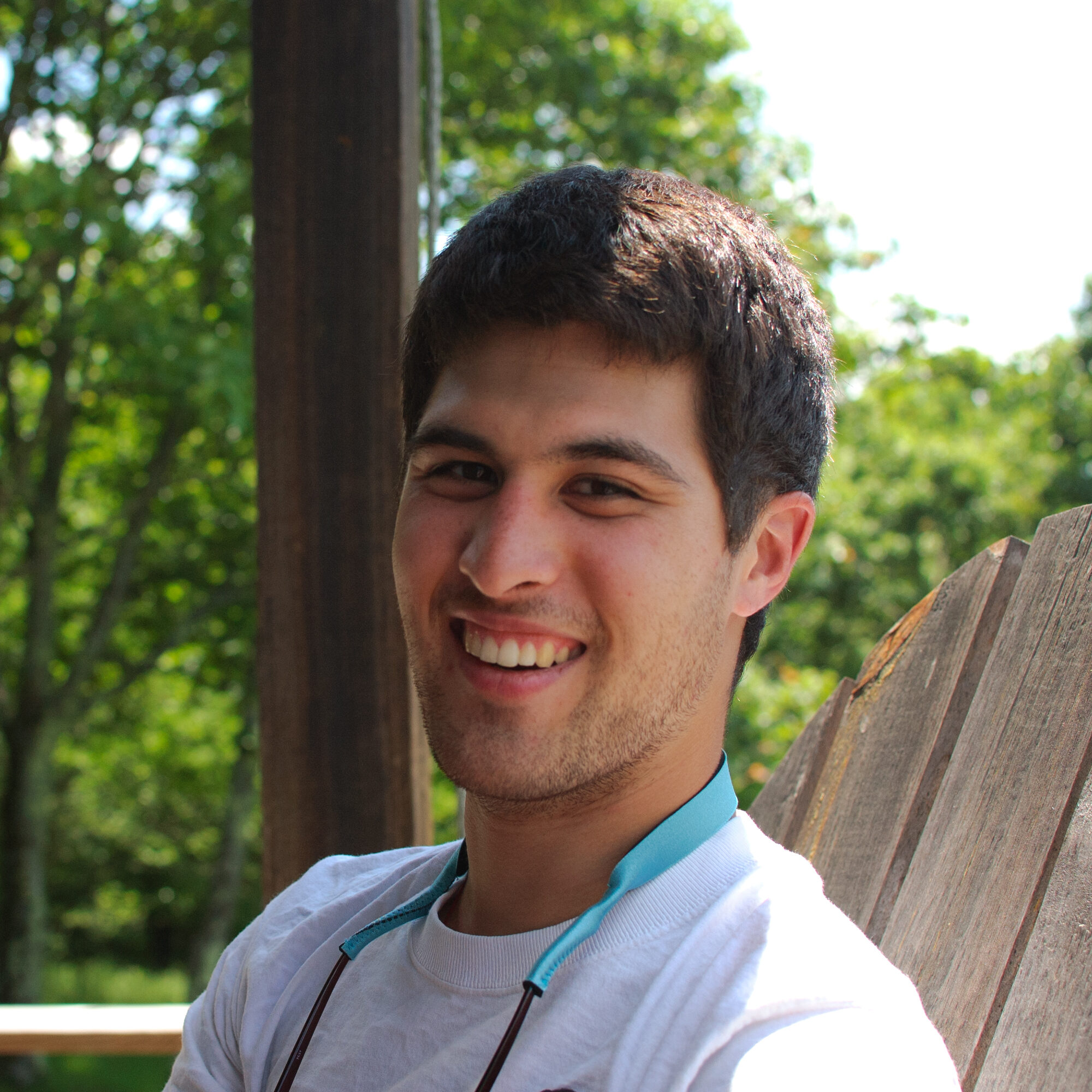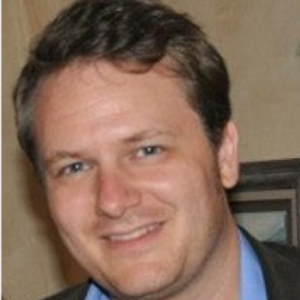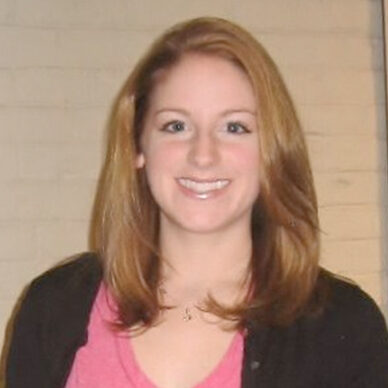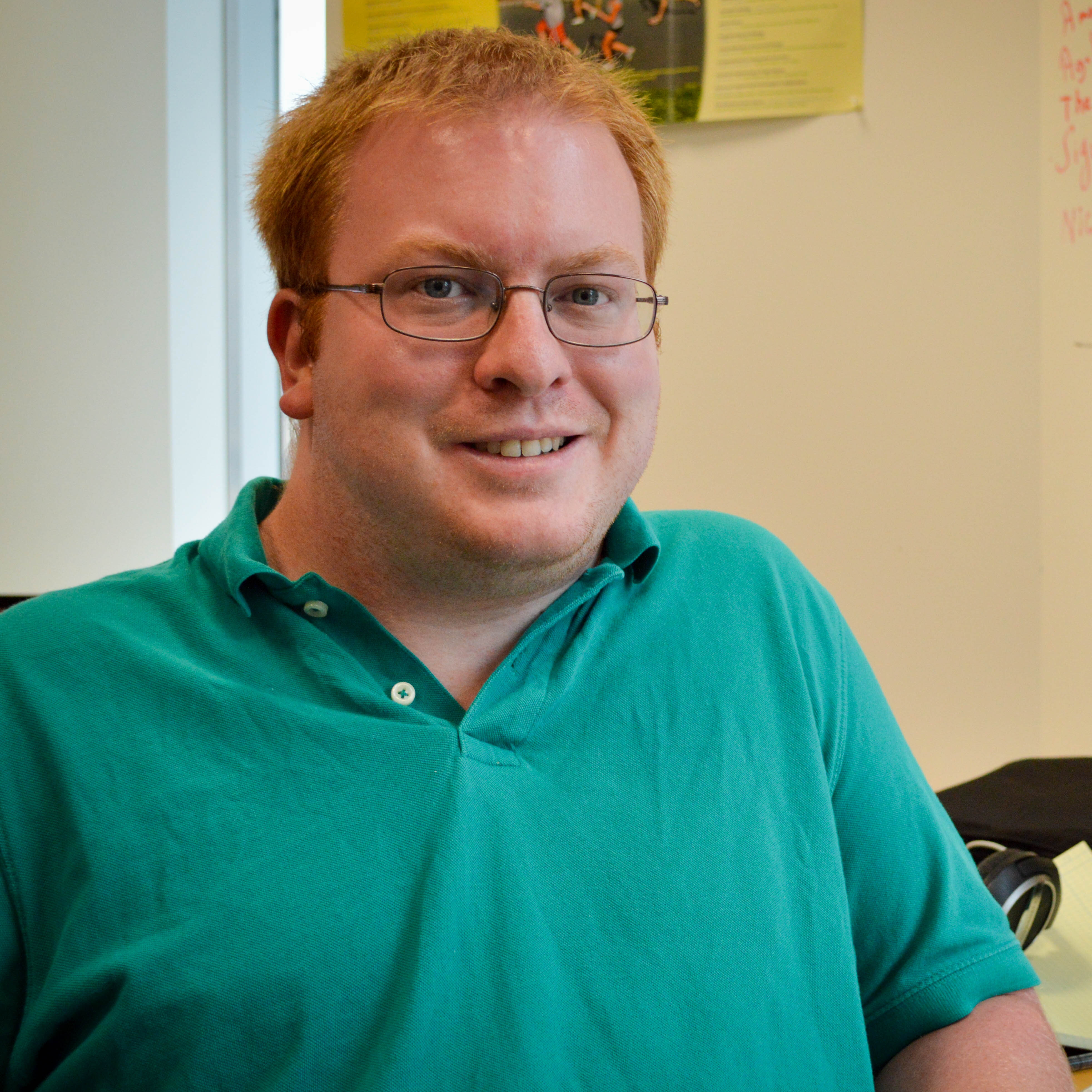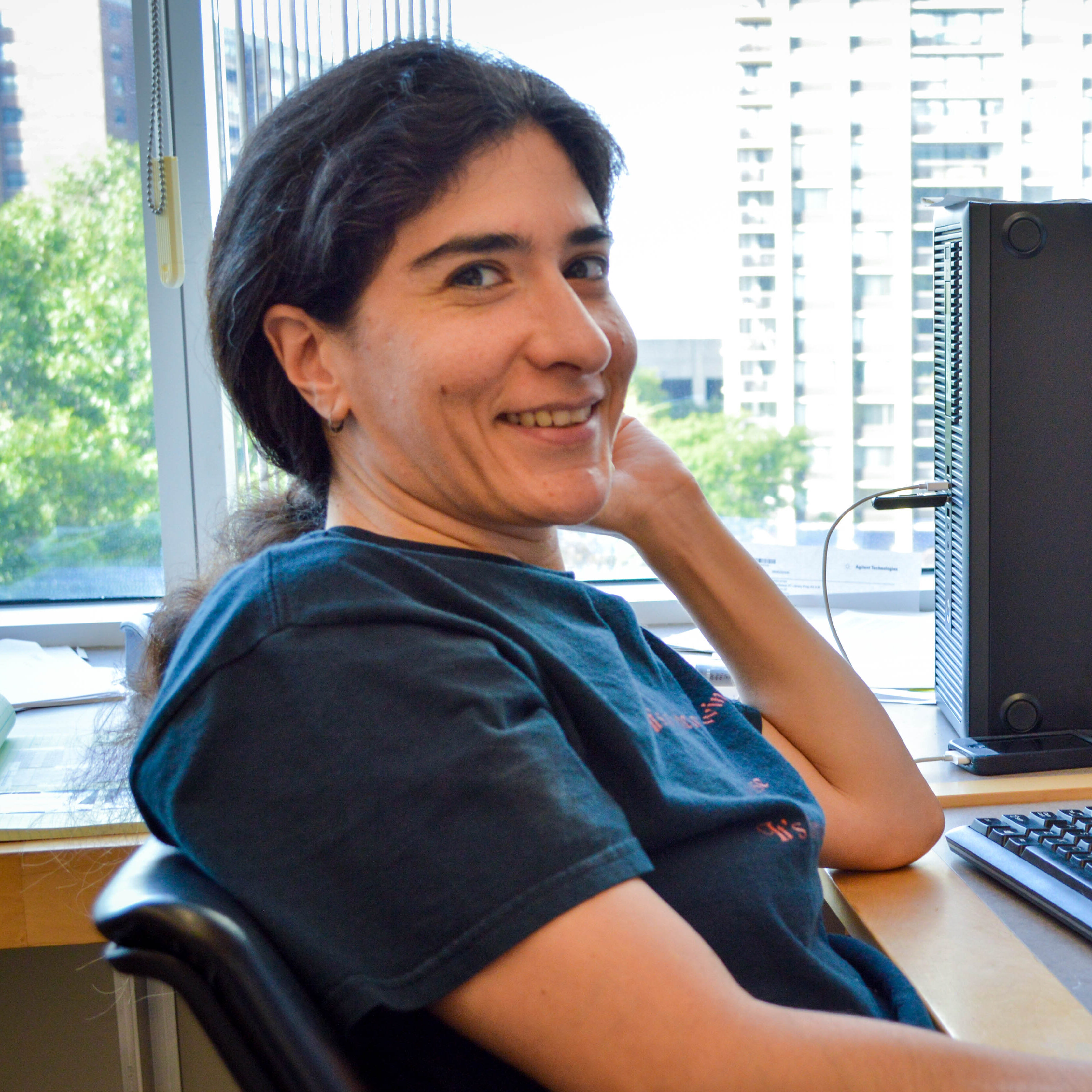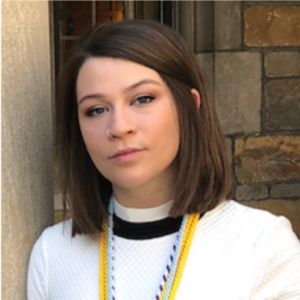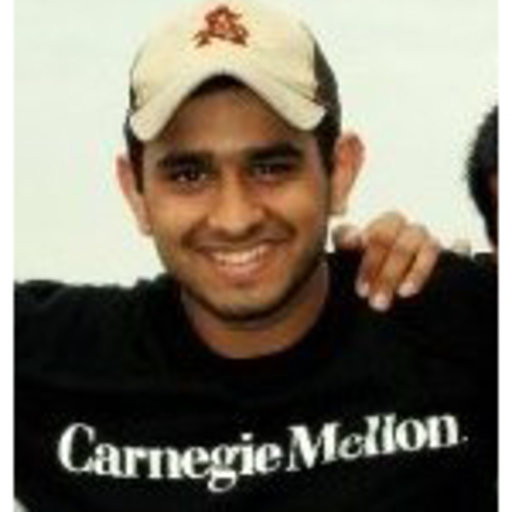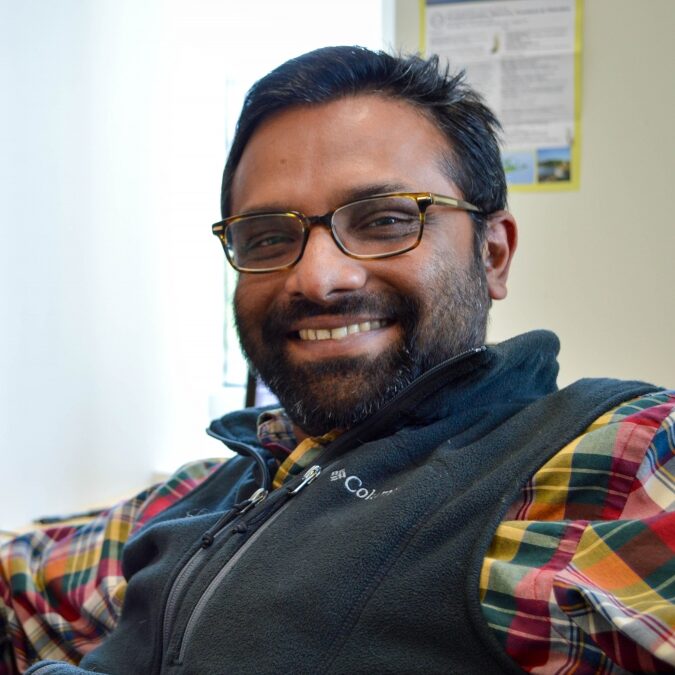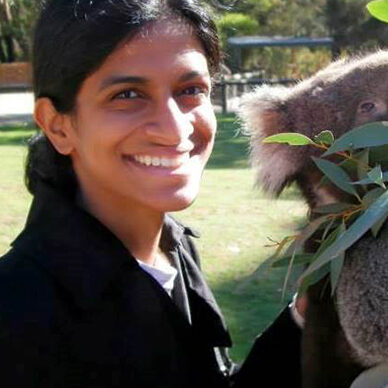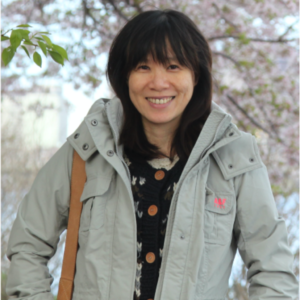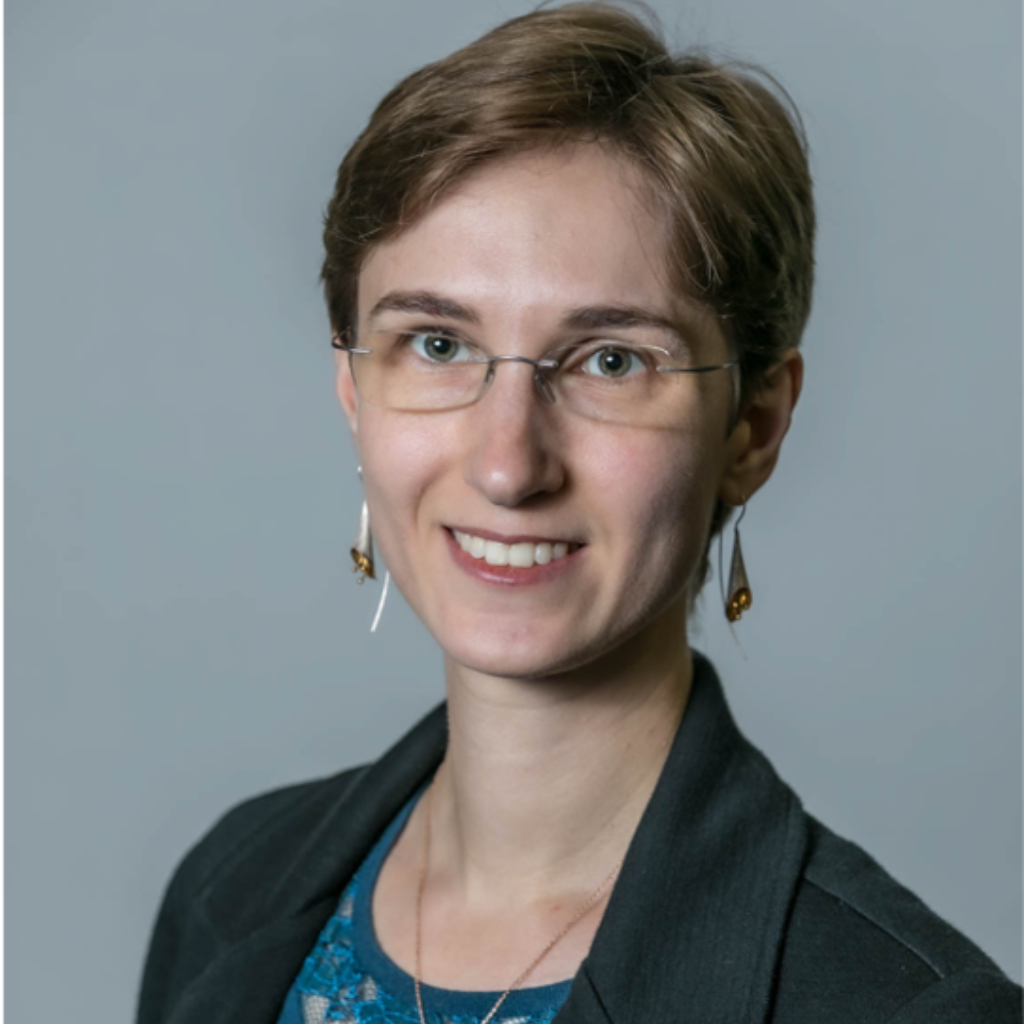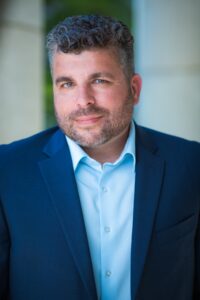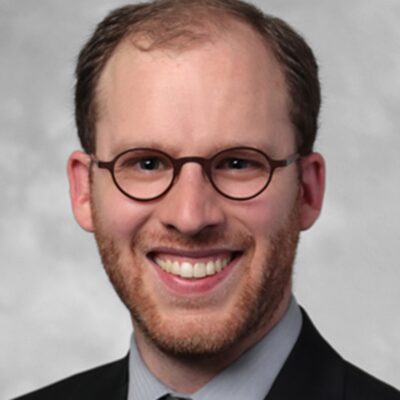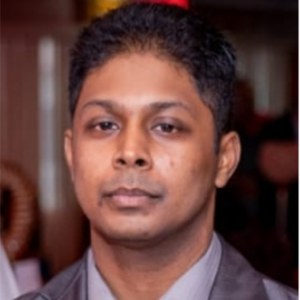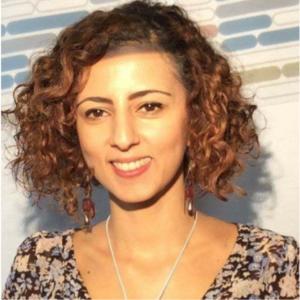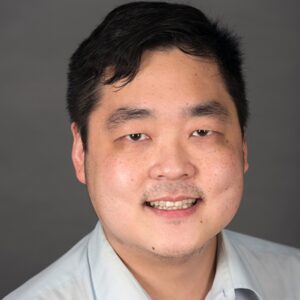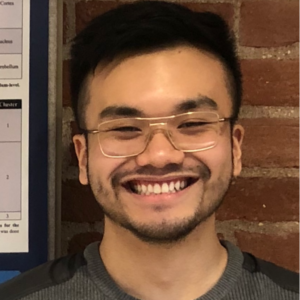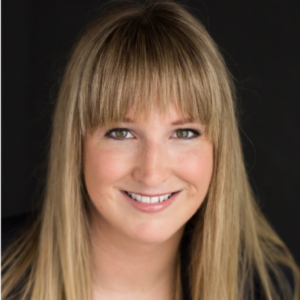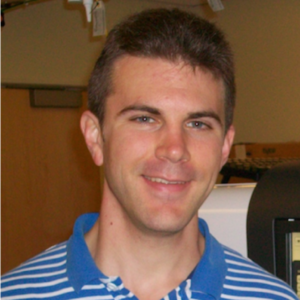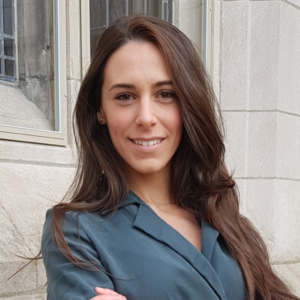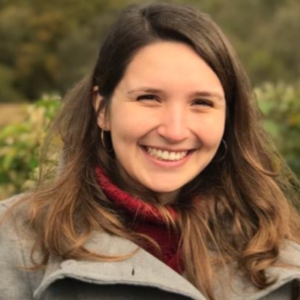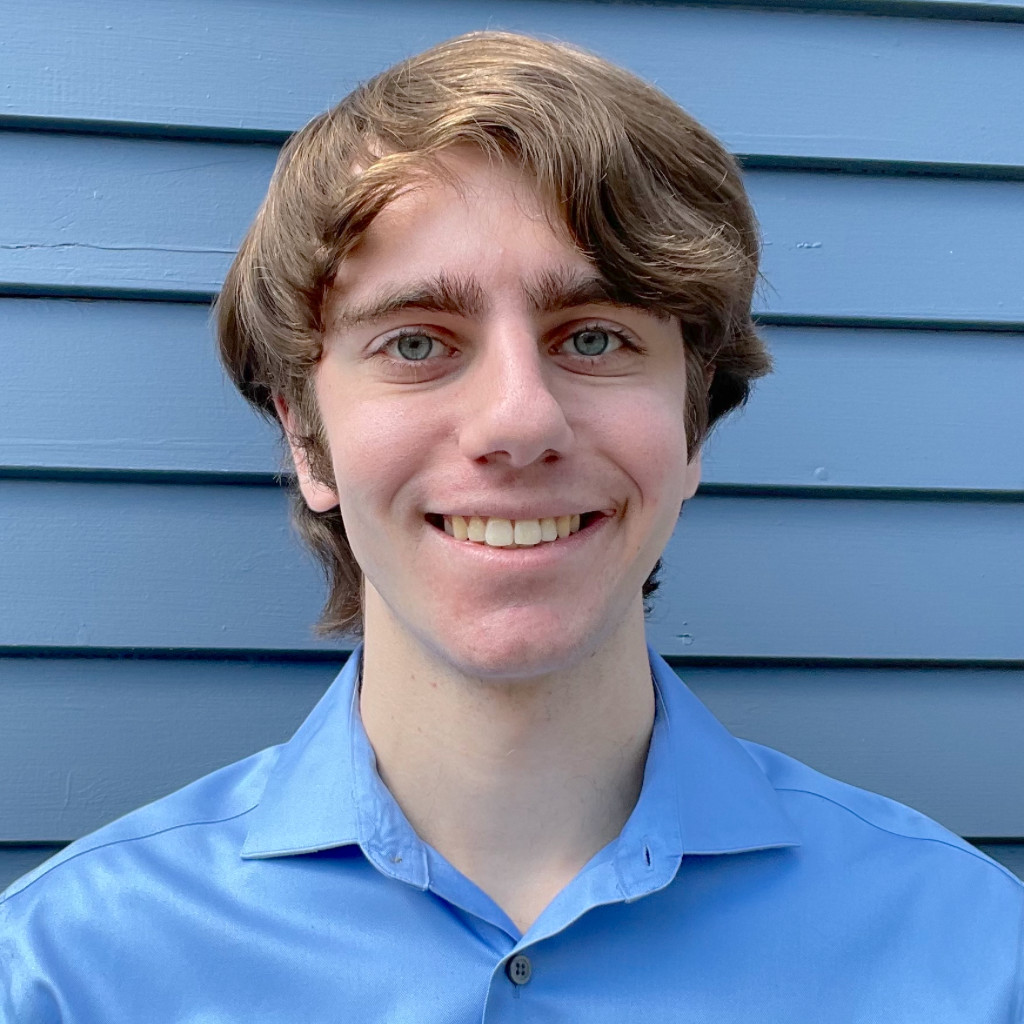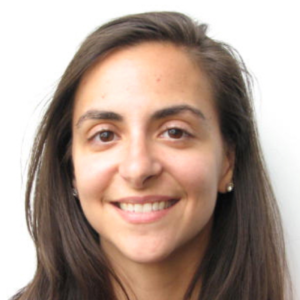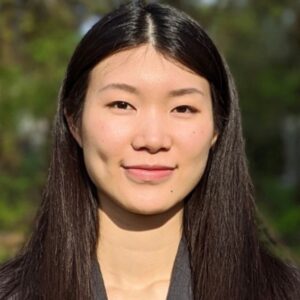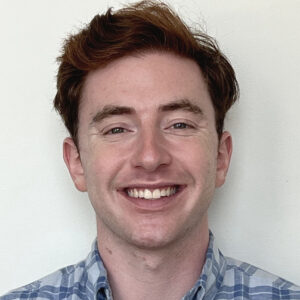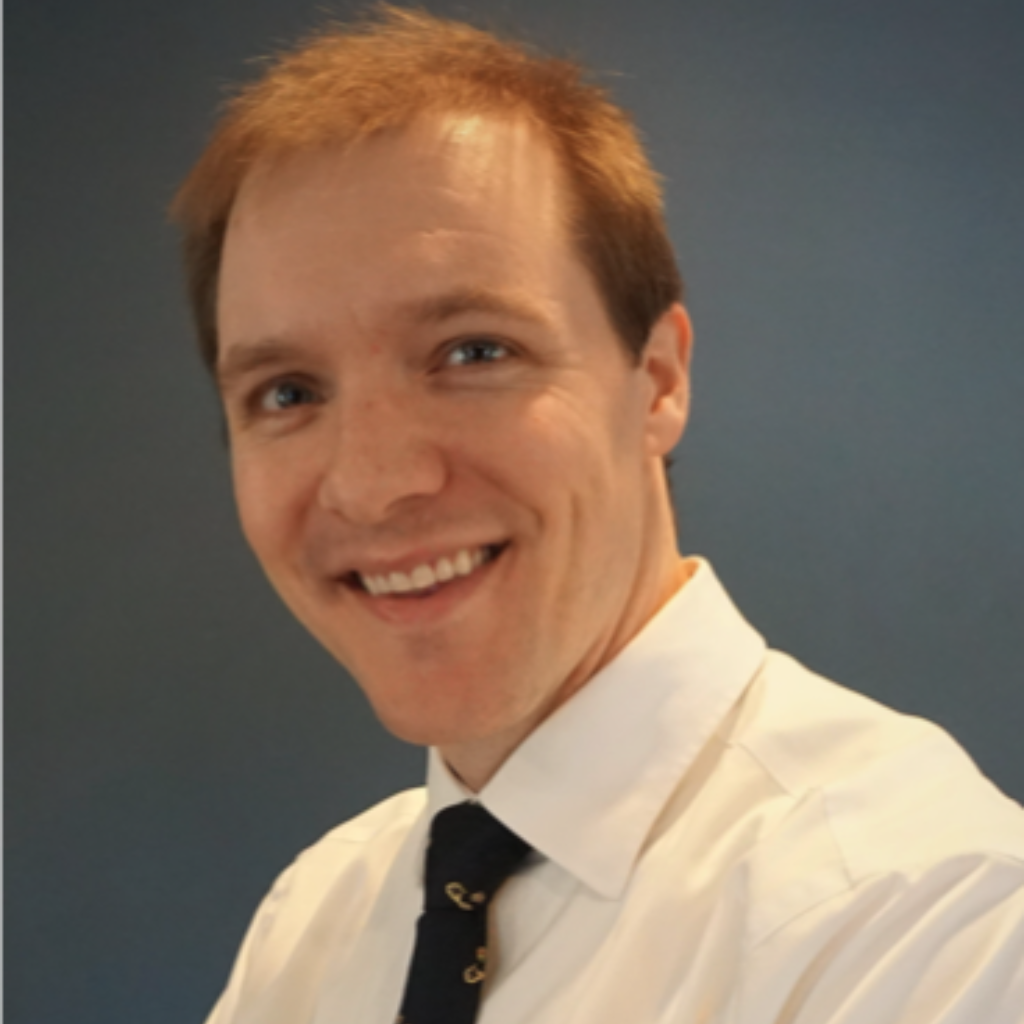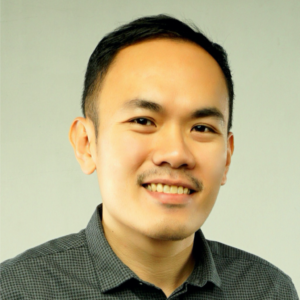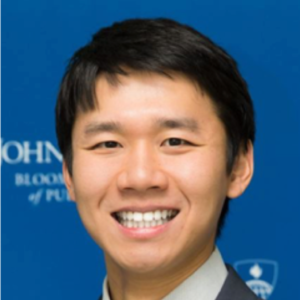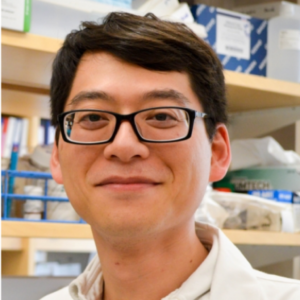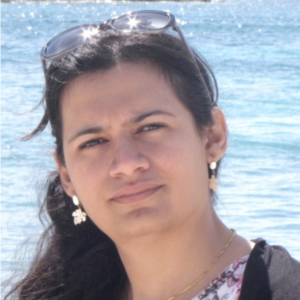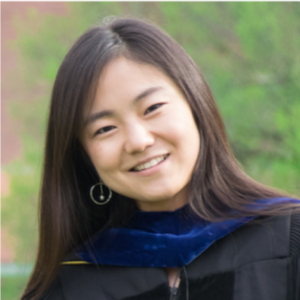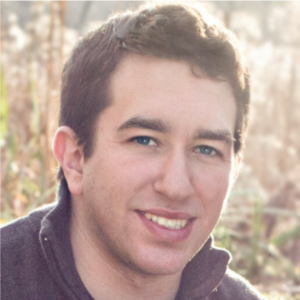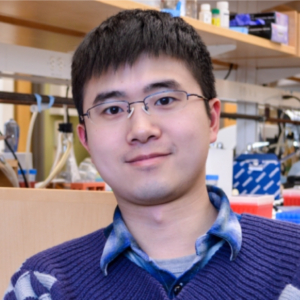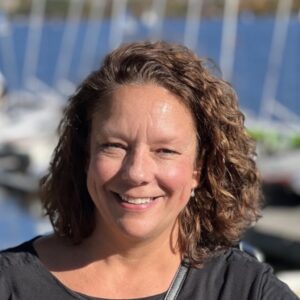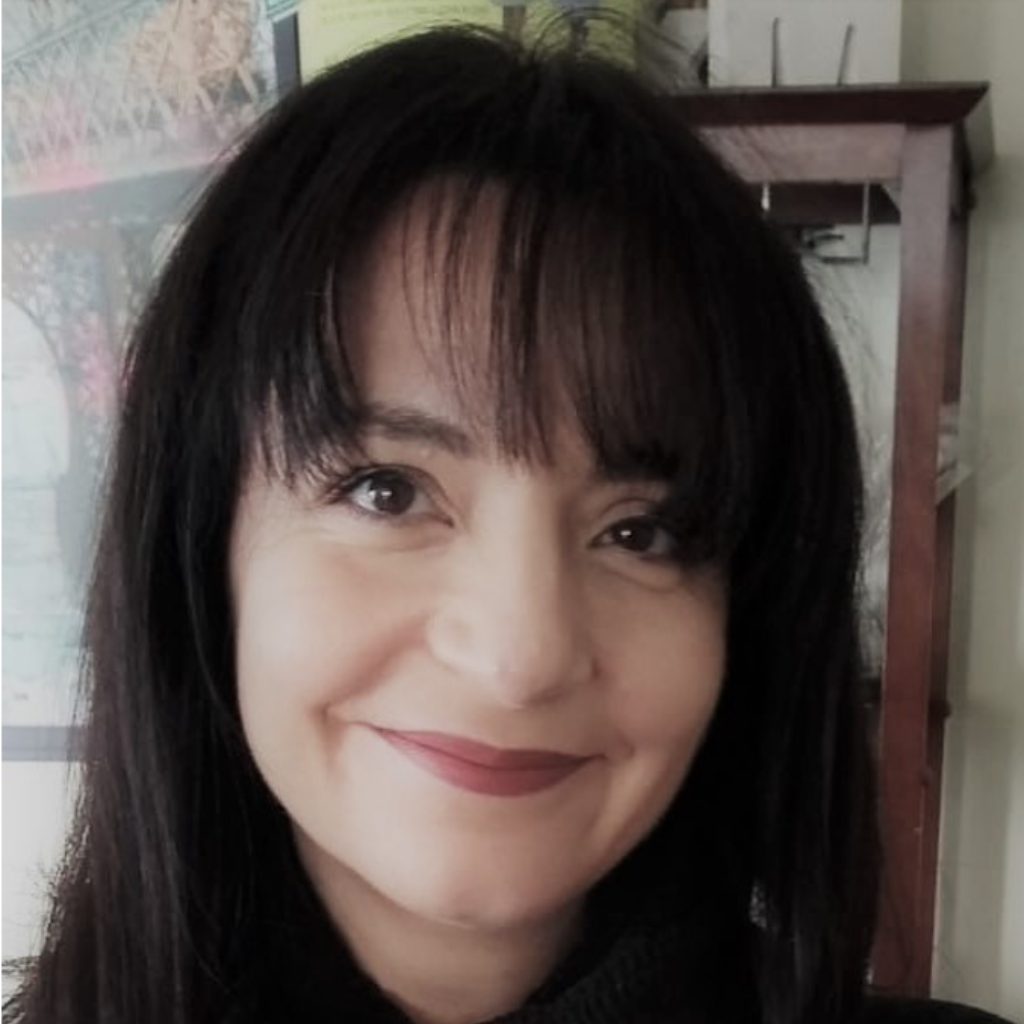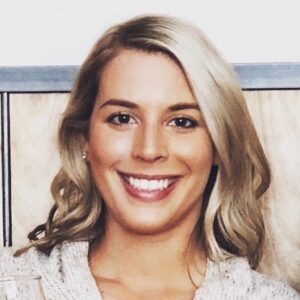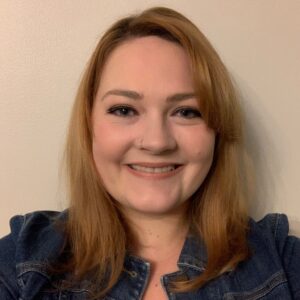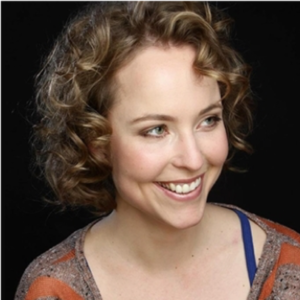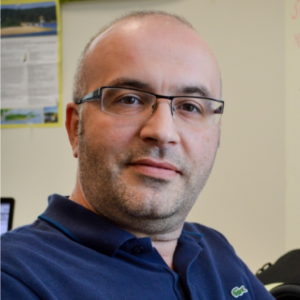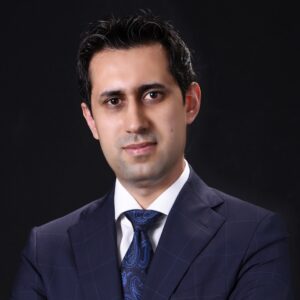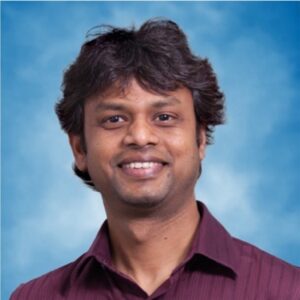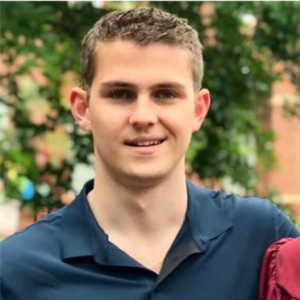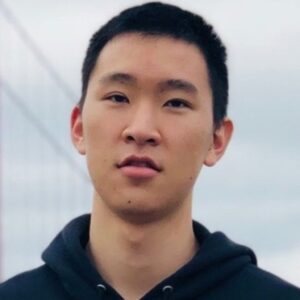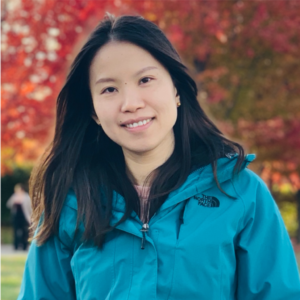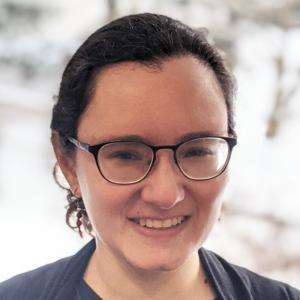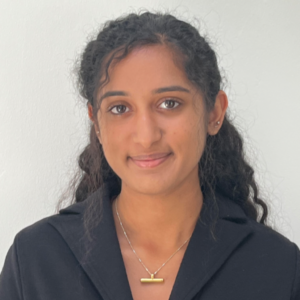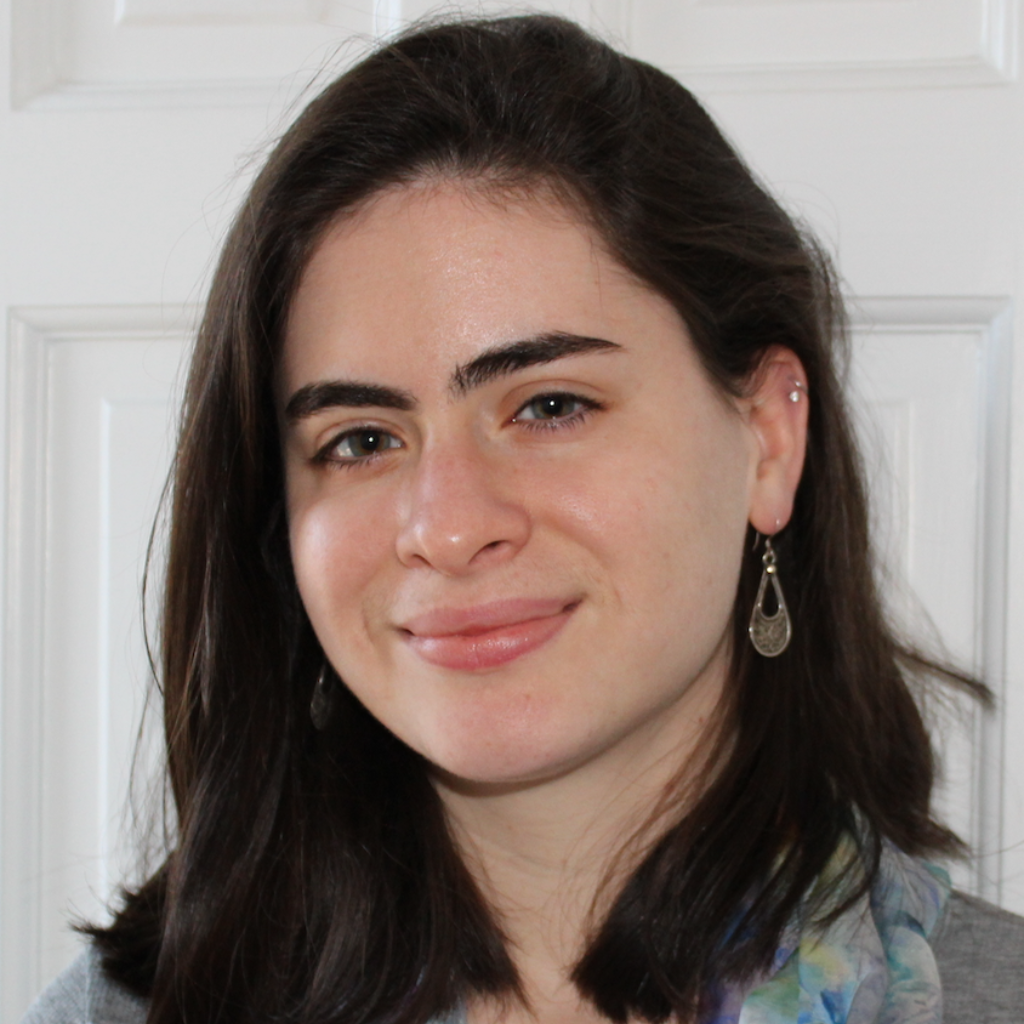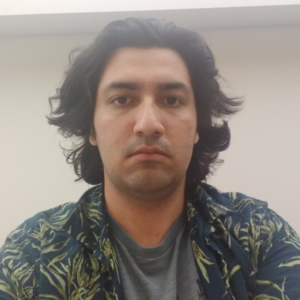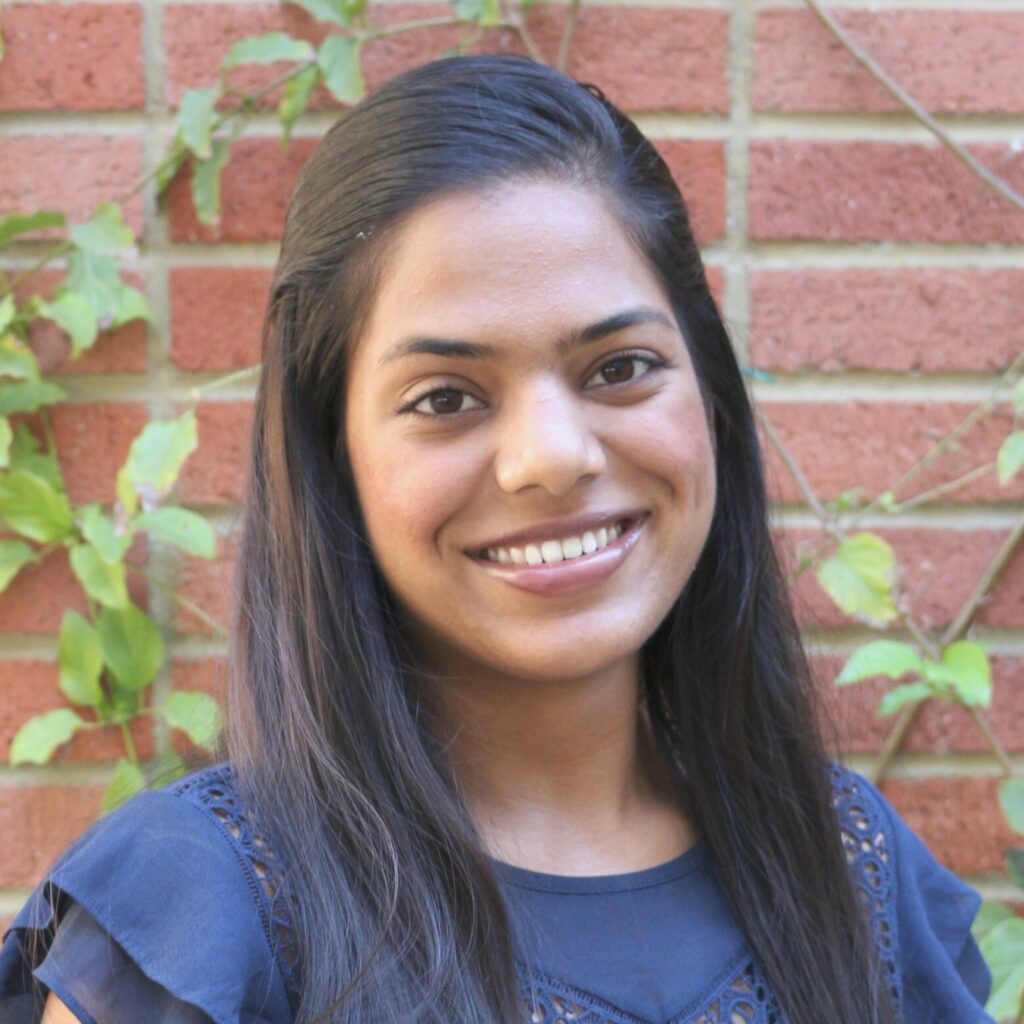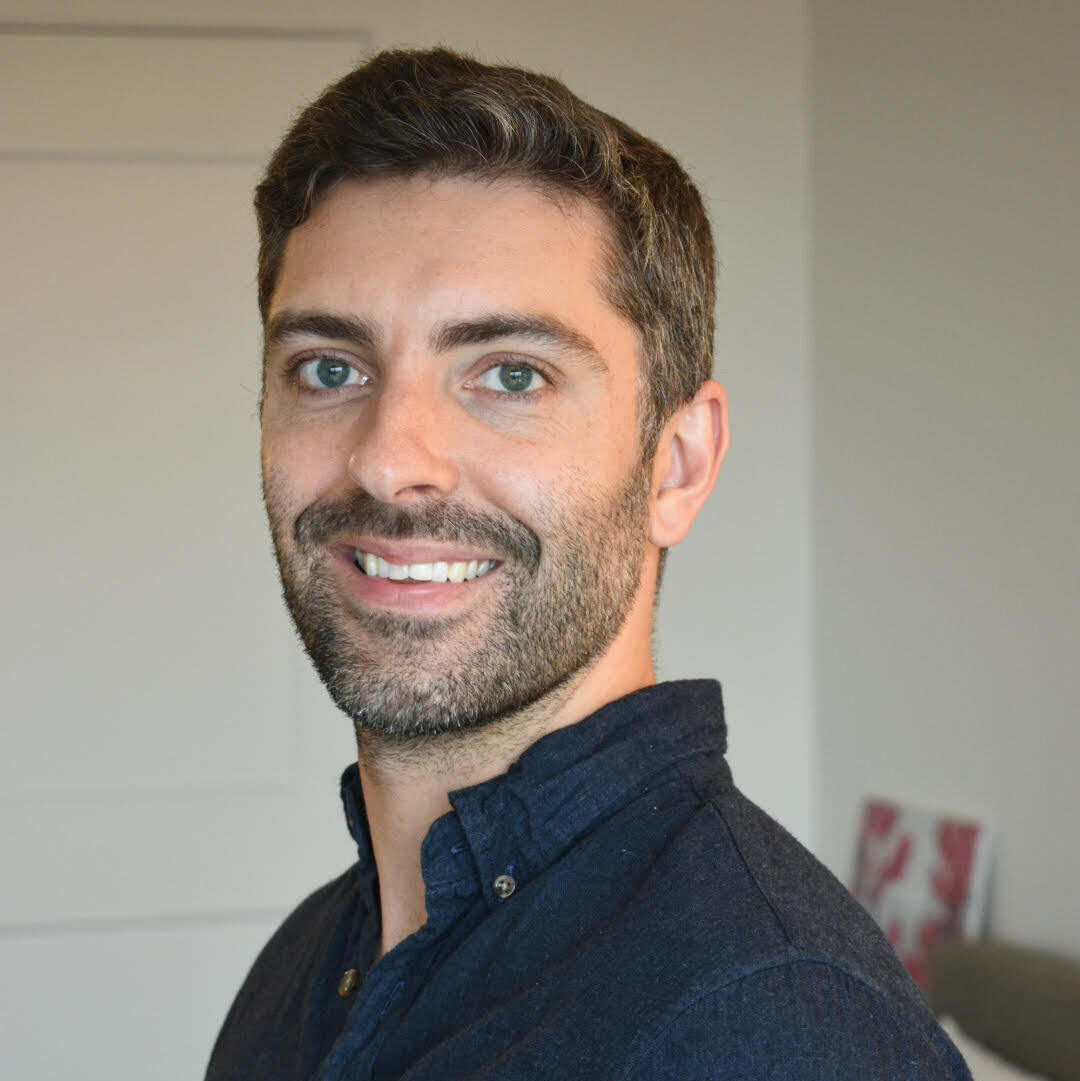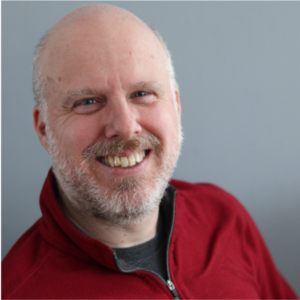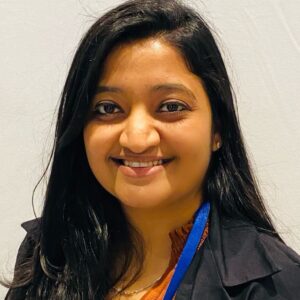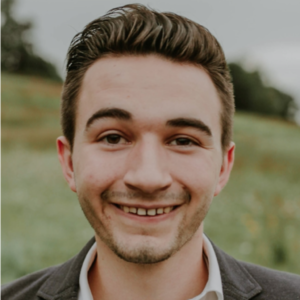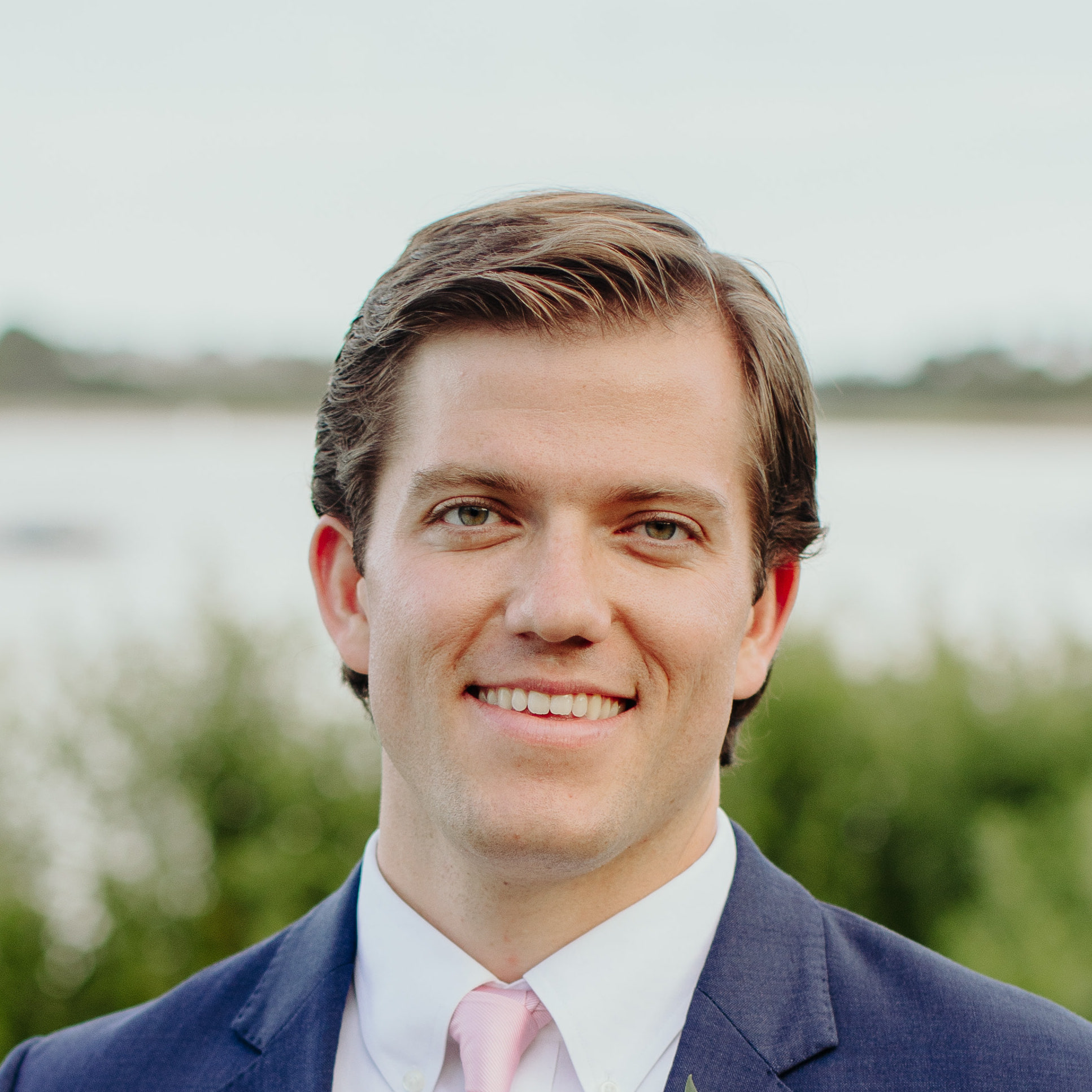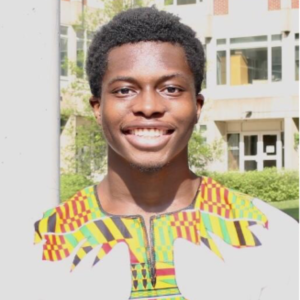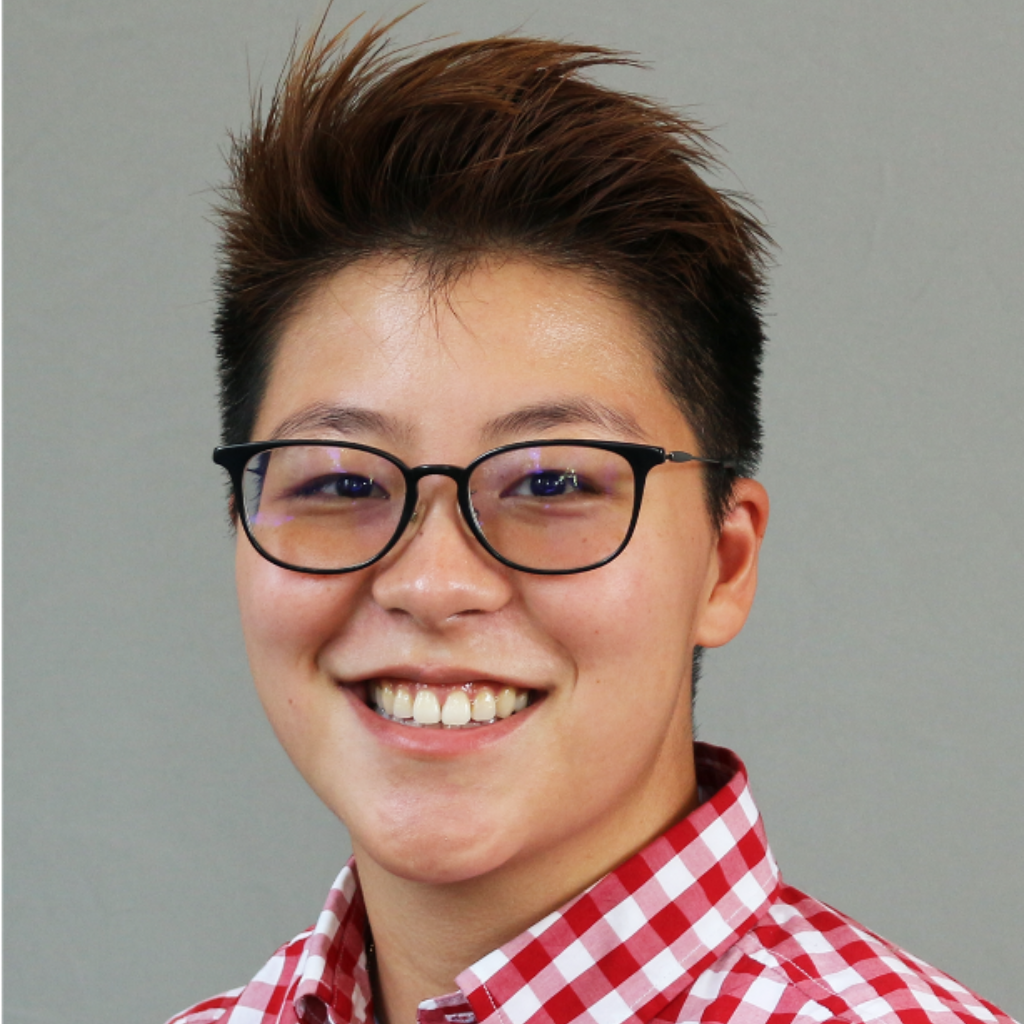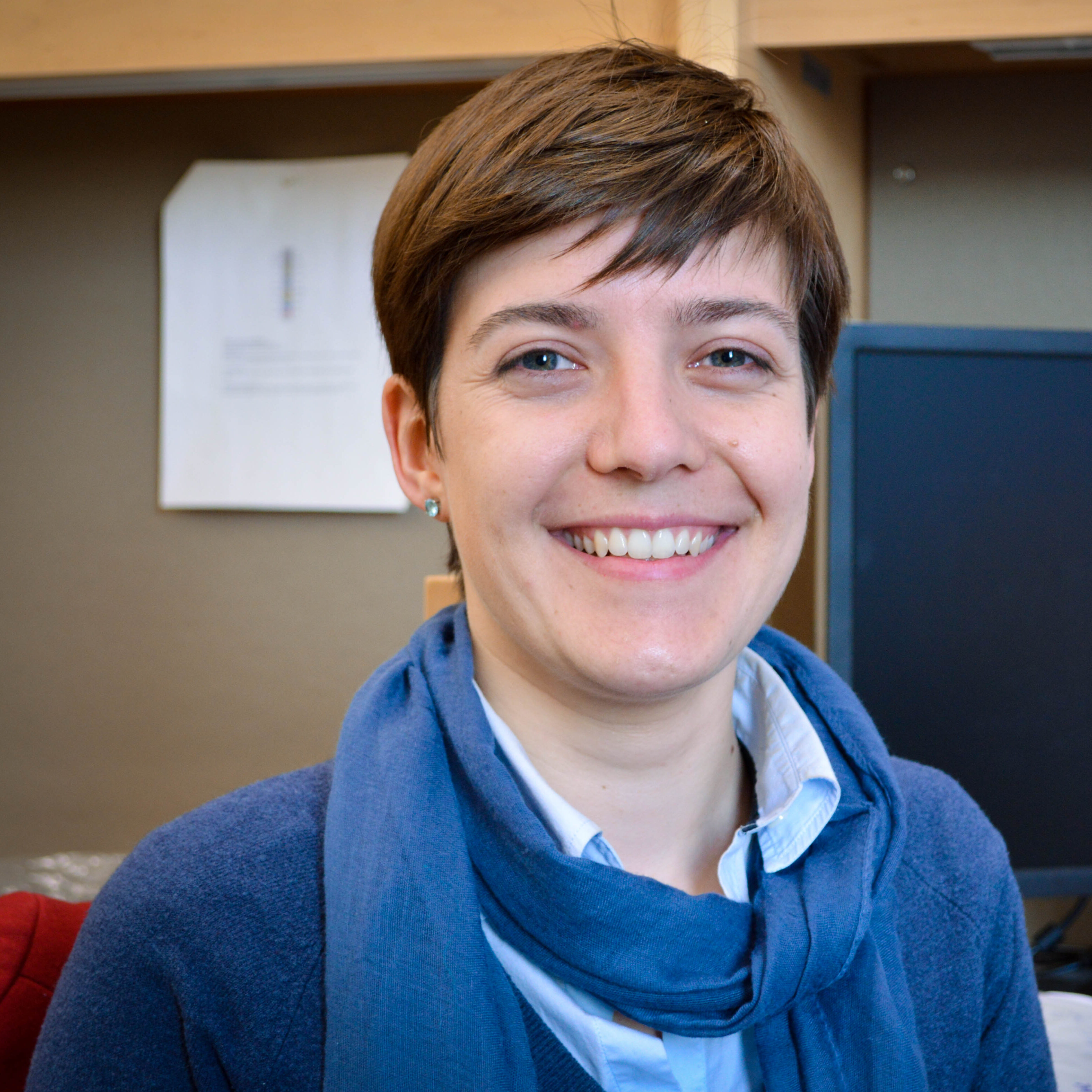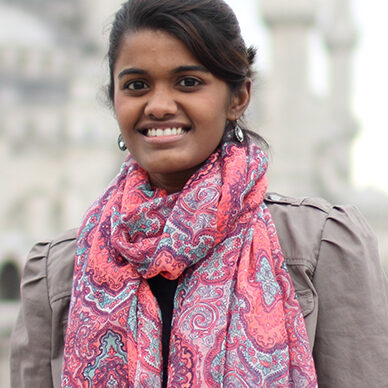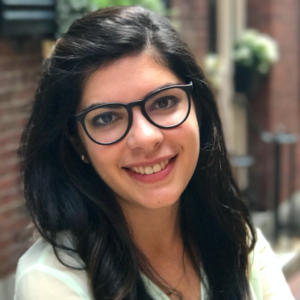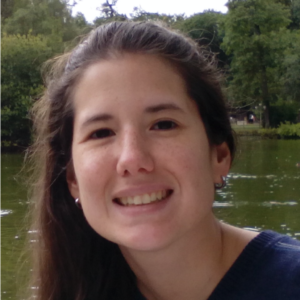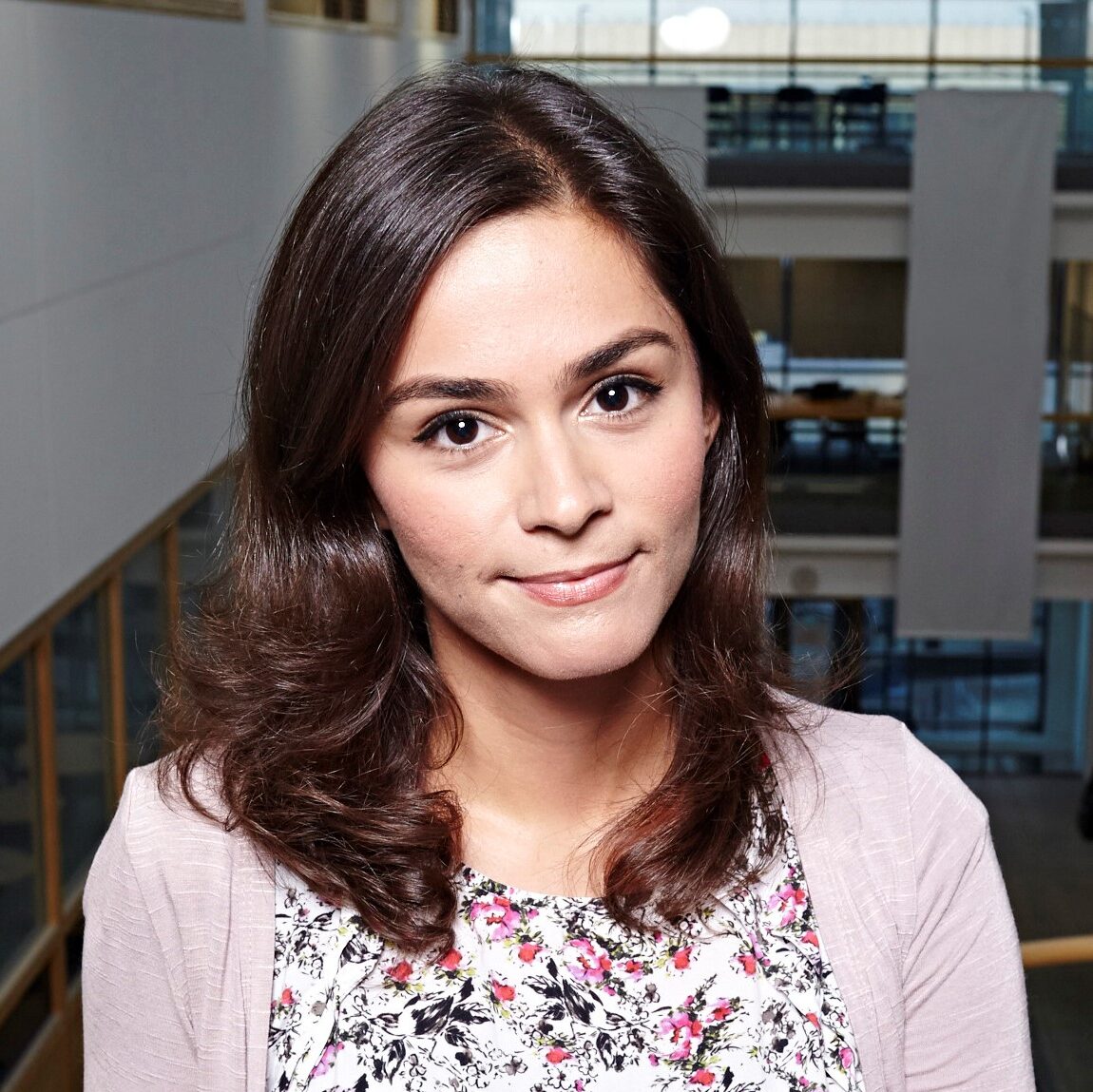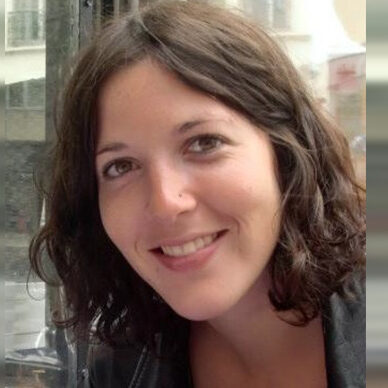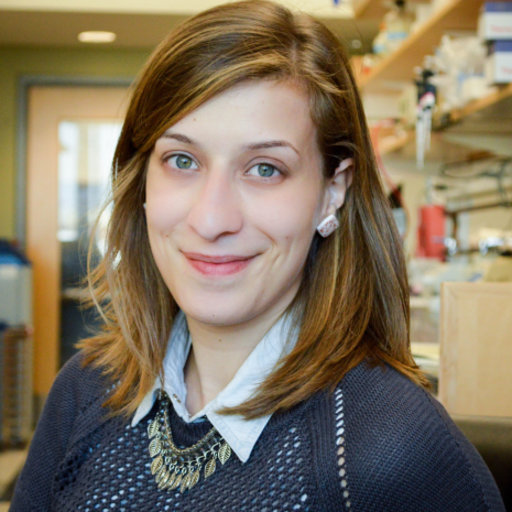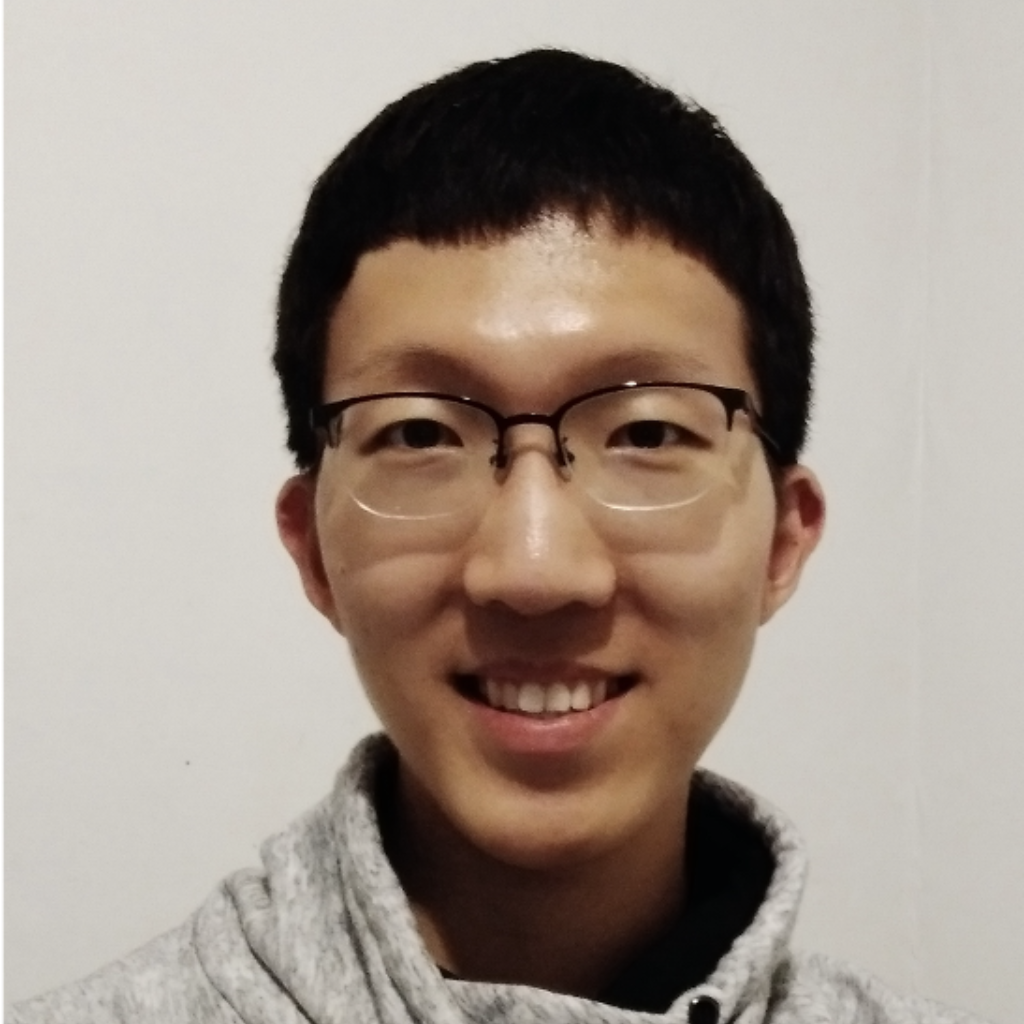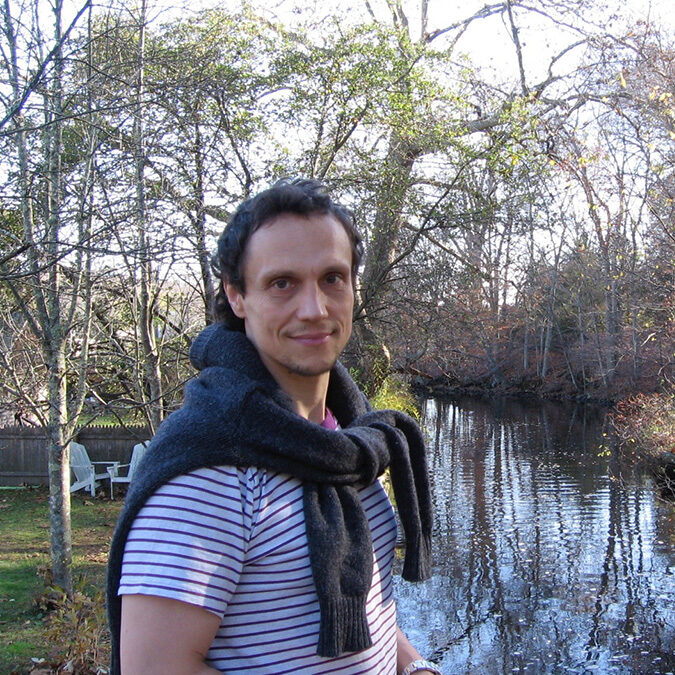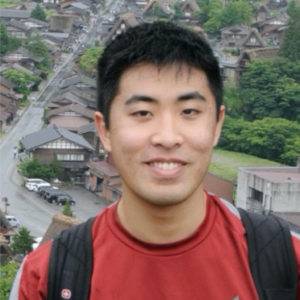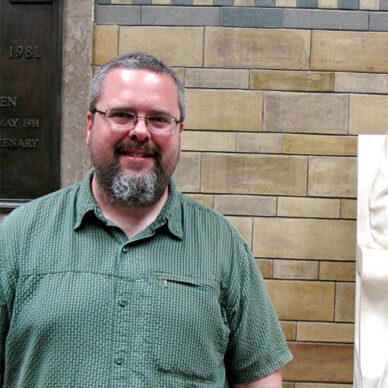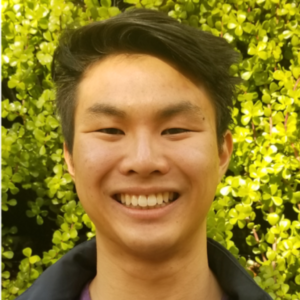Our Team
Principal Investigator
Michael Talkowski
Director, Center for Genomic Medicine and Institute Member, Broad Institute of MIT and Harvard
Mike received undergraduate degrees in Biology and Psychology and a PhD in Human Genetics with a focus in genetic epidemiology and psychiatric genetics. He joined the Center for Genomic Medicine (CGM) of Massachusetts General Hospital, the Department of Neurology in Harvard Medical School, and the Program in Medical and Population Genetics at the Broad Institute as a Postdoctoral Fellow with Dr. James Gusella in 2008 to study the genetic etiology of neurodevelopmental disorders, particularly autism spectrum disorders. He was appointed to the faculty of the CGM and Harvard Medical School in 2011 and is now the Director of the Genomics and Technology Core at MGH. He also became an Institute Member at the Broad Institute of MIT and Harvard in 2018 and is currently co-directs the Broad Structural Variation (BSV) Group and the NeuroDev Initiative. He also co-directs several consortia related to autism, fetal genomics, and large-scale reference resources, including gnomAD, All of Us, Fetal Genomics Consortium, and the SFARI Autism Sequencing Consortium. He is also a faculty member in the Harvard Biological and Biomedical Sciences (BBS) graduate program as well as the Bioinformatics and Integrative Genomics (BIG) program. In 2020, Mike became the Director of the Center for Genomic Medicine.
Postdoctoral Fellows
Michael holds a BA in Mathematics and Chemistry from Carleton College (Northfield, MN), an MPhil in Computational Biology from the University of Cambridge (Cambridge, UK) where he was a Gates Scholar, and an M.D. and Ph.D. in Genome Sciences (advisor Evan Eichler, PhD) from the University of Washington (Seattle, WA). For his PhD work, he investigated the molecular etiology of autism using genome sequencing, explored genetic modifiers, and used long read sequencing technologies to elucidate difficult to assemble regions of the genome. He pursued his residency in pediatrics at Boston Children’s Hospital and is currently a fellow in Clinical Genetics in the Harvard Genetics Training Program. He joined the Talkowski Group in Winter 2022. He is excited to focus on prenatal diagnostics to provide early diagnosis and enhanced care to the pediatric population and to better understand the genetic architecture of disease.
Ricardo joined the Talkowski laboratory in 2021 as a research fellow with a Ph.D. in Medical Sciences from the University of Toronto. His research focused on the functional interpretation of the human genome and how it relates to tissue-specific transcriptional changes. Ricardo is interested in using multi-modal datasets to investigate the factors involved in splicing disorders. To gain new biological insights, Ricardo is interested in creating novel algorithms and analysis techniques to interrogate high-dimensional data.
Nehir got her MSc degree in Molecular Mechanisms of Disease at Radboud University Nijmegen. In 2019, she received her PhD in Genetics, Molecular and Cellular Biology from University of Pavia. By combining whole genome sequencing and cytogenetics data, she studied the nature of constitutional complex chromosomal rearrangements. Her doctoral studies focused on characterization of chromothripsis like events as a formation mechanism of small supernumerary marker chromosomes. With Talkowski lab, she is looking forward to investigating hidden complexity in the human genome and its role in congenital defects. For her future studies, she would like to tackle the ambiguity in genotype-phenotype correlation in cases with numerically and structurally abnormal chromosomes.
Arthur is a research fellow in Neurology at MGH and postdoctoral scholar in Medical and Population Genetics at the Broad Institute. He uses scalable cloud-based methods to exhaustively identify structural variants in population and disease cohorts, with a particular focus on SVs in previous genomic blind spots (e.g., highly repetitive sequences). He leads ongoing efforts to integrate these rich catalogues of genomic variation with emerging functional epigenomics datasets as a powerful lever into human non-coding variation and disease risk. Arthur received his MD/PhD from Washington University in St. Louis, where he completed this PhD in Computational and Systems Biology with Don Conrad studying the impact of rare copy number variants on human fertility. He also previously completed a research fellowship at Boston Children’s Hospital.
Cal received his PhD in Human Genetics from McGill University (Montréal, Canada) as a Vanier Scholar. His research focused on identifying novel genetic and molecular insights for psychiatric and neurological disease. In March 2022, he started as a postdoc jointly co-supervised by Drs. Michael Talkowski and Benjamin Neale. He is excited to investigate the genetics of bipolar disorder, and is also planning to study the functional consequences of structural variation on genome structure. Outside of work, he likes to play piano, and with his two cats PLINK and Chromosome (Chrome).
Chelsea joined the Talkowski laboratory in September 2017 as a postdoctoral fellow, after completing her PhD in Medical Science with Anne Bassett at the University of Toronto in Canada. As a Frederick Banting and Charles Best CIHR funded doctoral student, Chelsea focused on determining the impact of rare copy number variation (CNV) on IQ in schizophrenia and delineating the variable expression and incomplete penetrance of genomic disorders associated with neuropsychiatric disorders. In the Talkowski laboratory Chelsea will be working on the Developmental Genome Anatomy Project (DGAP) using whole-genome sequencing and computational tools to help identify new genetic causes of neurodevelopmental disorders and congenital anomalies.
Xander has long been fascinated by the genetics of disease and human evolution. He is currently a Research Fellow in Mike Talkowski’s lab, having completed his doctoral training with Evan Eichler at the University of Washington. His current focus is understanding genomic disorders, deletions or duplications of particular chromosomal segments that often manifest as neurological disease early in development. By integrating technology development, genome editing, and functional genomics, he hopes to elucidate the mechanistic underpinnings of genomic disorders and their associated phenotypic variability.
Alba joined the Talkowski laboratory as Postdoctoral Fellow in 2020 after completing her PhD in Biotechnology at the Polytechnic University of Valencia, in collaboration with the University of Cambridge. Her research focused on the discovery of unknown etiological genes and variants in coding and non-coding regions of the genome of patients with rare diseases. Fascinated by the complexity of the human genome, she worked on identifying and characterizing causal structural variants using multiple sequencing technologies, including short- and long-read whole-genome sequencing. In the Talkowski group Alba will be working on large-scale population and clinical genomics projects to systematically explore a variety of genomic variation and its implication for human disease.
Gabriela joined Talkowski lab in October 2021. She had her bachelor at Biomedical Science in Universidade Federal de São Paulo, in Brazil. During her undergraduate she joined the psychiatric genetics lab, were she had a three-year internship working specially with gene expression in schizophrenia. During her PhD, at the same lab, she investigated miRNA expression profiles in extracellular vesicles from patients in first episode psychosis. Gabriela had one year research internship in Martin-Luther Universität Halle-Wittenberg in Germany. Now in Talkowski Lab as a Postdoctoral fellow, she will work on genomic studies of human neurodevelopmental disorders (NDDs) and will contribute to a series of molecular and functional genomic studies of individual genes that have been associated with NDDs.
Graduate Students
Daniel is a PhD student in the Bioinformatics and Integrative Genomics (BIG) program at Harvard Medical School. He joined the Talkowski lab in 2022, and his thesis work will integrate long and short read sequencing data to characterize structural variation and its role in human disease. Daniel previously graduated from Brown University with a bachelor’s degree in computational biology. At Brown, Daniel worked in Dr. Sorin Istrail’s lab to develop algorithms for associating genetic variation with polygenic disease.
Elise is a PhD candidate in the Biological and Biomedical Sciences program at Harvard Medical School and is supported by an F31 predoctoral fellowship. Her thesis work focuses on genetic diagnostic testing and mosaic variation. Elise graduated from St. Mary’s College of Maryland with a bachelor’s degree in Biology and before attending graduate school, she spent two years as a post-bac at the NIH Undiagnosed Diseases Program followed by two years as an associate computational biologist at the Broad Institute in the lab of Dr. Daniel MacArthur. This research gave her exposure to bioinformatics and Mendelian disease genetics, work she will expand upon during her graduate studies.
Lily is a PhD student in the Bioinformatics and Integrative Genomics (BIG) program at Harvard Medical School. She joined the Talkowski lab in 2021, and is an NSF graduate research fellow as well as an NIH F31 predoctoral fellow. She is interested in investigating the heritable bases of human disease to advance human health. Her thesis work focuses on identifying evolutionarily important regions of the human genome based on selection signatures and exploring the biological functions and disease implications of these elements, particularly in early development. Lily graduated from Cornell University in 2020 with a bachelor’s degree in Biological Sciences and Computer Science. At Cornell, she performed research in the lab of Dr. Andrew Clark, examining cross-ethnic differences in the genetic architecture of complex traits.
Alex is a PhD student in the Bioinformatics and Integrative Genomics (BIG) program at Harvard Medical School. He studied Biology at Washington University in St. Louis, where he graduated in 2019. Before graduate school, he worked for two years in Dr. William Buchser’s lab, working in a group to develop imaging-based perturbation screens. Alex joined the Talkowski Lab in the fall of 2022, where he will focus his thesis work on mobile element insertions and their functional effects in the human genome.
Instructors
Philip holds a B.S. in Biological Sciences from Stanford University and an M.D. and Ph.D. in Molecular and Human Genetics from Baylor College of Medicine. Philip pursued combined residency training in Pediatrics and Medical Genetics at Boston Children’s Hospital (BCH) and the Harvard Genetics Training Program. He is now a K08-funded Instructor, pursuing research in the Talkowski laboratory at Mass General and seeing genetics and metabolism patients at BCH. In the lab, he is using in vitro CRISPR genome engineering to understand how disruption of genomic architecture leads to neurological phenotypes.
Aloy (he/him) focuses his research on the genetic and molecular mechanisms surrounding dystonia, including of X-linked dystonia-parkinsonism (XDP), a unique neurodegenerative disease found mainly in his home country, the Philippines. He obtained his medical degree and residency in clinical neurology from the University of the Philippines. He then pursued a neurogenetics PhD at the University of Lübeck in Germany. Aloy’s studies combine genome editing in stem cell models with functional genomic methods to identify altered signatures in THAP1-dystonia, XDP, and other dystonias.
Jack received his PhD in Biostatistics from Johns Hopkins working with Drs. Ingo Ruczinski, Jeffrey T. Leek, and Robert B. Scharpf. While there, he worked primarily on methods development for an array of genetic sequencing data, including rare deletion detection and association using whole exome sequencing of familial pedigrees, linear modeling of RNA-seq transcript abundances, and de novo copy number variant detection using targeted sequencing trios. With the Talkowski lab, Jack will be investigating the detection of copy number and structural variants, as well as their implications for human health.
Derek joined Dr. Gusella and Dr. Talkowski’s laboratory at the Center for Genomic Medicine in October 2013 as a postdoctoral fellow. During his postdoctoral work, he developed a CRISPR/Cas9 genome engineering approach, SCORE, to model reciprocal genomic disorders (RGDs) by mimicking the in vivo non-allelic homologous recombination (NAHR) mechanism. His current research focuses on the RGDs including 16p11.2, 15q13.3, and 15q11.2-13.1 which are associated with ASD, schizophrenia, intellectual disability, PWS, obesity, Dup15q syndrome and AS. We have successfully established the human isogenic iPSC and derivative neuron models for these RGDs in the lab. We aim to identify the critical components of the RGDs by evaluating the molecular, cellular, and functional alterations from global and individual gene deletion models.
Rachita got her training in bioinformatics in India and completed her PhD at Denmark Technical University, Denmark focusing on understanding the effect of genetic, epigenetic and clinical variations on the molecular mechanisms in complex phenotypes. Her current research focus is the integration of multi-dimensional genomics datasets associated with the genetic etiology of neurological disorders. She is developing integrated methods for reference-based and reference–free genome analyses to identify known and novel genomic variation of predicted functional relevance. The pathogenesis of neurological disorders often involves multiple genes, complex interactions thus, the functional genomics aspect of hey project employs genome-wide and targeted transcriptomics analysis of neural cell lines and post-mortem brains from different neurological disorders to investigate pathological mechanisms.
Xuefang joined the Talkowski lab in June 2017 as a postdoc fellow, with a Ph.D in Bioinformatics and Masters’ in Statistics from the University of Michigan at Ann Arbor. Her Ph.D research mainly focused on discovering and understanding structural genomic variants(SVs) through multiple sequencing technologies including the short read next generation sequencing (NGS) and the single molecule real time long sequences (SMRT). Xuefang has gathered rich experience in discovering and understanding genomic SVs, especially those in complex formats, during her graduate training when two independent software were developed to discover and validate genomic SVs. Xuefang has also participated the Human Genomic Structural Variation Consortium (HGSVC) and contributed great effort to integrate genomic variants detected by multiple algorithms and compare multiple sequencing platforms.
Affiliated Faculty
Harrison is an Assistant Professor in the Department of Neurology at MGH and Harvard Medical School with a secondary affiliation in the MGH Pediatric Surgery group. Upon completion of his PhD in Human Genetics from the University of Pittsburgh he joined the Talkowski lab as a postdoctoral fellow focusing on the statistical and computational aspects of the genetic analysis of structural variation (SV) in complex disease. After his postdoc, Harrison received a NIH K99/R00 pathway to independence grant seeking to understanding the genetic underpinnings of common craniofacial disorders and has started a lab focused on investigating the genetic etiology of congenital birth defects and other developmental anomalies. He still collaborates closely with the Talkowski lab given his shared research interest in the development and application of novel methods for improved detection of pathogenic SV.
Dadi joined the Talkowski Laboratory in 2016 as a postdoc fellow with a PhD in Bioinformatics from the University of Sydney. His research focuses on the functional interpretation of human genome. Working on deep sequencing data from iPSC-derived neural cell lines, he investigates transcriptomic abnormality to reveal the molecular mechanisms in multiple neurological disorders and seeks for potential treatment development. Dadi is also interested in developing high-performance pipelines that integrate edge-cutting algorithms to facilitate biological findings.
Research Support Staff
Jennifer previously worked at MGH for approximately 18 years in the Department of Pediatric Orthopaedics, first as an administrative assistant and then Practice Manager. She received a bachelor’s in psychology from Central Ct State University and pursued a Master’s in Marriage and Family Therapy there as well. She has joined the CGM as a Program Manager working to support Michael Talkowski, PhD and the Fetal Genomic Consortium.
Monica holds a Ph.D. in Cell Biology and a B.S. in Biology from the University “La Sapienza” in Rome, Italy. Monica did her postdoctoral research at the University of Massachusetts Medical School in Worcester, where she studied the molecular mechanism underlying Facioscapulohumeral Muscular Dystrophy (FSHD), a human disease caused by a complex intertwined interaction between genetic and epigenetic factors. After her post-doc, Monica joined the laboratory of Dr. Susan Slaugenhaupt here at the Center for Genomic Medicine. At MGH, both as a research scientist and lab manager, she contributed to the success of several collaborative research projects aimed to develop a therapeutic approach for the ultra-rare disease Familial Dysautonomia (FD). FD is a sensory and autonomic neuropathy caused by an mRNA splicing defect. This work culminated successfully with the identification of a splicing modulator compound that is in clinical development. Monica joined the Talkoski laboratory in March 2020 as Project Manager, to oversee projects, milestones, and collaborations, as well as helping with strategic planning, funding decisions, budgets, and funding portfolio.
Laura joined the Talkowski lab in January 2017. She has a master’s degree in Human Genetics from the University of Pittsburgh and a Bachelor’s degree in Biochemistry. Before joining the lab she worked briefly as a technologist for LabCorp. She has also taught biology courses at Eastern Nazarene College and Quincy College.
Laura currently works on administration, finances, grants, scheduling, and lab management.
Research Staff
Celine de Esch is a research scientist in Mike Talkowsi’s laboratory at Massachusetts General Hospital in Boston. She received her PhD from the Erasmus University Rotterdam, the Netherlands in 2014 and joined the lab as a postdoc early 2015. Her work focuses on the cellular modeling of neurodevelopmental disorders such as Fragile X syndrome, ASD and Prader-Willi syndrome.
Serkan is director of bioinformatics, responsible for bioinformatics activities in the Talkowski Lab and Genomics & Technology Core. His research interests lie in the areas of computational biology, functional genomics and neuroscience. He is primarily involved in computational functional genomic analyses in the context of neuro-degenerative and neuro-developmental disorder. In this respect, he has been working on functional genomic characterization of autism-associated genes and copy number variations in human neural lineage lines and mouse models. He also contributed to several other genetic and functional genomic studies on other neurological disorders including Huntington’s disease and neurofibromatosis types I and II. He was recruited to the lab as a staff scientist following a postdoctoral fellowship at the Computational and Integrative Biomedical Research Center and the Department of Molecular and Human Genetics at Baylor College of Medicine where he worked on protein function-structure relationships and chromatin function. Before he switched his research focus to biology, he conducted research in computational and physical chemistry at the University of Minnesota and Argonne National Laboratory. Serkan holds a B.S. degree in physics from Bogazici University and a Ph.D. degree in theoretical physics from Texas A&M University. During his training, he was awarded competitive fellowships from the Supercomputing Institute of the University of Minnesota, the National Institute of Health and the National Library of Medicine.
Vahid was awarded his Ph.D. degree in Information Technology in 2016 at the Politecnico di Milano with cum laude (highest recognition). His Ph.D. dissertation focused on systematic solutions for efficient retrieval and inference from a large collection of the next-generation sequencing data. He has been a team member of the Galaxy project since 2016, a Web-based framework for data-driven biomedical analysis. His research within the Galaxy project context has been focused on facilitating cancer informatics. Specifically, enabling users to study large cohorts of in-house data using protected-access commons such as National Cancer Institute’s Cancer Research Data Commons (NCI CRDC). Accordingly, he led a development to extend the Galaxy framework in user authentication and authorization, co-led cloud-based storage and compute resource federation, and Cloud deployment of Galaxy instances. His research interest spans artificial intelligence and computational biology topics, such as applying deep learning to single-cell imaging and sequencing data for cancer therapeutics.
Bimal holds a BS in Chemistry and a MS in Biochemistry from University of Calcutta, India. He received a PhD in Biochemistry studying proteome-wide stress response upon protein aggregation and studied molecular mechanism of protein function at Penn State. Bimal became interested in genome-wide study and employed transposon-sequencing approach to develop therapeutics by identifying the Achilles heel of superbug at University of Copenhagen. To study the functional organization of bacterial genomes, Bimal developed genome-wide tool CRISPRi-TnSeq to construct genetic interaction network in collaboration with Dr. Tim van Opijnen of Boston College. Bimal joined the Talkowski lab in spring of 2022 as a fellow of the Genomics and Technology Core of MGH and transitioned to a staff scientist role in 2023. He is interested in developing technologies to detect genetic disorder and mapping genome-wide connection of gene or mutation linked to disease.
Jack received his Bachelor of Science from Loyola University of Maryland in May of 2020. After graduating he worked as a manufacturing associate at Catalent where he assisted with the production of an adeno associated viral vector for spinal muscular atrophy in the company’s gene therapy division. Jack also spent the summer of 2019 as an intern in the Talkowski lab where he worked with Philip Boone and Kiana Mohajerioptimizing CRISPR and ChIP-seq protocols.
Justin joined the Talkowski lab at the end of 2023 as a Bioinformatics Specialist to work on the development of methods for the detection of structural variations. Previously, he worked as a research assistant in the AbuGoot lab at The McGovern Institute for Brain Research where he developed computational pipelines to mine genomic databases for protein systems with potential genome editing applications. He holds a BS in Bioinformatics from the University of California, San Diego.
Yating joined the Talkowski Lab in July 2021. She obtained a bachelor’s degree in Biology and a master’s degree in Computer Science with a focus in bioinformatics. After graduation, she joined the Elgin lab at Washington University in St. Louis in 2016 and worked as a bioinformatics application developer focusing on the development of G-OnRamp – an integrated, web-based, scalable environment for interactive gene annotation of eukaryotic genomes. From 2018 to present, she has been working as a bioinformatics scientist in the Dougherty lab in Washington University School of Medicine in St. Louis and has contributed to multiple research projects in the fields of genomics and psychiatric disease research by conducting a variety of bioinformatics analyses, creating a microRNA database, and developing scientific pipelines.
Yulia joined the Talkowski lab as a staff scientist in February 2021 after completing postdoctoral work in Pui Kwok’s lab at UCSF. Her postdoctoral research focused on developing methods for using optical mapping to determine the structure of highly complex areas of the human genome. She has also worked on causal variant analysis and genome assembly. She holds a B.A. from Princeton University in Evolutionary Biology and Applications of Computing and received her PhD in Molecular and Cell Biology from UC Berkeley, where she studied antisense transcription and gene regulation in yeast.
Krithika joined the lab in September of 2023. She holds a bachelor’s degree in Molecular and Cellular Biology with a minor in Data Science from UC Berkeley. Her work focuses on fetal genomics and exploring non-invasive fetal sequencing programs. Previously, Krithika has worked as a Research Associate for a pharmaceutical start-up in South San Francisco, and has done a summer internship at the Broad Institute in the Methods Group of the Data Sciences Platform.
Emma joined the Talkowski lab in June 2020 with a joint appointment to the Broad Data Sciences Platform (DSP). Her work focuses on structural variation methods and research, including contributing to the GATK-SV pipeline. Emma holds a B.S. in Statistics & Data Science from Yale University. Her past experiences include summer internships in Dr. Daniel MacArthur’s lab at the Broad Institute, where she contributed to ExAC and gnomAD; a software development internship at IBM; and undergraduate machine learning research in the lab of Dr. Smita Krishnaswamy.
Sid joined the Talkowski lab in June 2922. He graduated from Carnegie Mellon with an MSc. in Computational Biology. His work focuses on charaterizing the regulatory genomics of XDP and Prader-Willi Syndrome, specifically SNORDs. Previously he has worked on analyzing pan-cancer transcriptomics and how CRISPR systems affect horizontal gene transfer in bacteria. His research interests include multi-omics, integrative analyses and graph-based analyses of biological data. His hobbies include coding and cooking.
Eren joined the Talkowski Lab in October 2023 after receiving his Bachelor of Science in May 2023 from MIT, with a double major in Computer Science and Molecular Biology & Brain and Cognitive Science. During his undergraduate years at MIT, Eren conducted research in a broad range of fields, including human behavioral studies in cognitive science and wet lab experiments in molecular neurobiology, before settling into the field of computational biology and bioinformatics. Eren was a SuperUROP scholar for the academic year 2022-2023 as a part of the Kellis Lab, where he investigated the heterogeneity of human microglia across brain regions, age, and sex in both homeostatic and diseased states via single-cell RNA sequencing (scRNA-Seq) datasets of several diseases, including Alzheimer’s Disease (AD), Amyotrophic Lateral Sclerosis (ALS), and Autism Spectrum Disorder (ASD). In the Talkowski Lab, Eren supports the Mendelian Aggregation team in discovering and analyzing de novo SNVs and indels in large-scale whole genome sequencing (WGS) and whole exome sequencing (WES) cohort datasets.
Kirtana joined the Talkowski lab in April of 2023. She has a bachelor’s in computational and systems Biology from UCLA, concentrating on Data Science and Bioinformatics, and a minor in Mathematics. She will receive her M.S. in Bioinformatics from Boston University in August 2023. In the past, she has worked with a wide range of informatics. Her undergraduate thesis focused on statistical analysis and bioinformatics analysis of patient cohorts and electronic health record data to analyze stroke rehabilitation outcomes. As an intern at the National Institute on Aging, she worked primarily with mitochondrial and circular RNA regulation in Alzheimer’s Disease. While working at the Chan Zuckerberg Initiative, she collaborated on the integration and standardization of representation and analysis of multiple types of single-cell sequencing data. She will be working with the structural variant team on the GATK-SV pipeline as well as on studies including the All of Us Research Program and gnomAD and is eager to bring a culmination of all her past experiences with data analysis to the table.
Mark joined the lab in 2018 with a joint appointment in the Methods Group of the Data Sciences Platform (DSP) at the Broad Institute, where he has been a computational biologist since 2016. He brings expertise in developing scalable, production-ready genomics analysis tools and pipelines using cloud-enabled data processing technologies developed in DSP. Mark leads development of the GATK-SV pipeline and supports computational operations across large-scale studies in the lab, including gnomAD. He is also a developer on the GATK team, where he has worked on structural variant and pathogen detection tools. He holds a Ph.D. in Biomedical Engineering from Johns Hopkins University and a B.S. in Chemical Engineering from Tufts University.
Chris joined the lab in 2021 and has worked at the Broad Institute since 2014 in the Broad’s Data Sciences Platform and Stanley Center for Psychiatric Research. Chris focuses on the development of methods for genomic structural variation and copy number variation detection and is a Technical Lead for the development of structural variation methods within the Genome Analysis Toolkit (GATK). He has contributed to and led methods development and analysis projects aimed at understanding patterns of structural variation in human populations, structural variation mutation rates, and the association of copy number variation with human disease. Prior to joining the Talkowski lab he was a member of Steven McCarroll’s lab at the Stanley Center and Harvard Medical School. He holds a Ph.D. in Computer Science, with a focus on computational biology, from Oregon Health & Science University, and an A.B. in Computer Science from Harvard University.
Alumni
